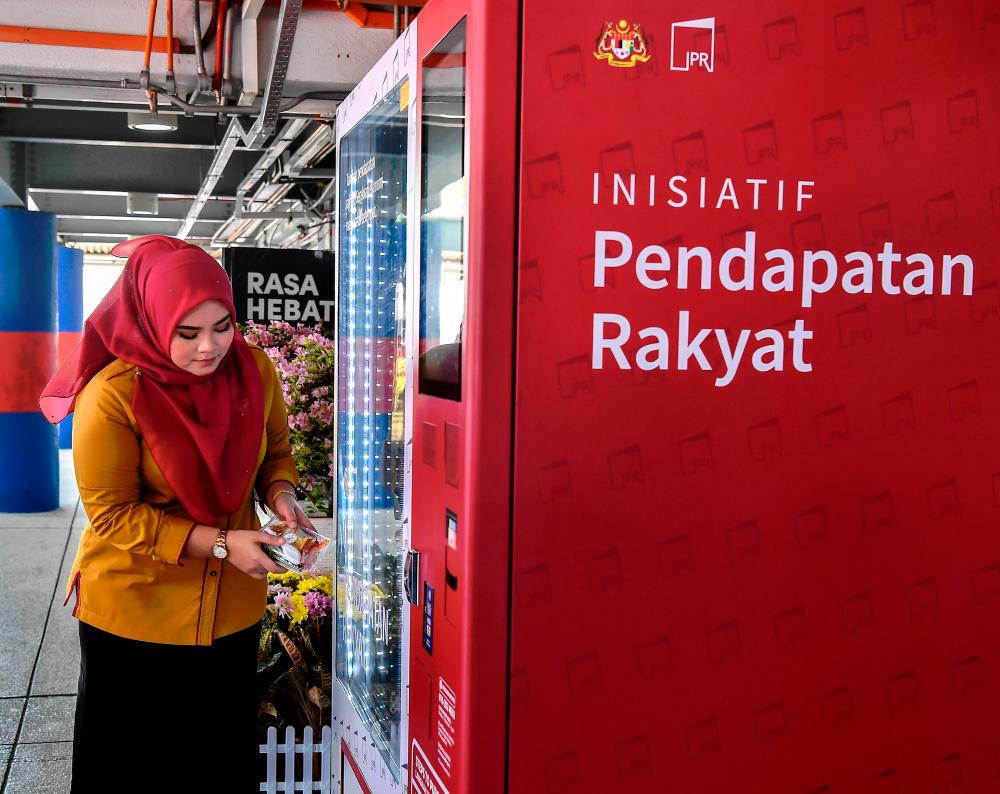PETALING JAYA: As Malaysia continues to grapple with long queues in public hospitals and clinics, the idea of vending machines dispensing medication and medical certificates (MC) has sparked interest among health professionals.
Singapore has already implemented such machines as a convenient way to access basic healthcare.
However, concerns have been raised regarding potential data breaches and the need to tighten regulatory frameworks to uphold healthcare standards.
Universiti Kebangsaan Malaysia public health medicine specialist Prof Dr Sharifa Ezat Wan Puteh said: “Vending machines could be viable in urban areas due to greater IT and health literacy, but they may present a challenge in rural areas, even though one of the objectives of vending machines is to cater to such settings.”
Sharifa Ezat noted that while such technology could enhance convenience, there are risks of hacking or database interception, which could increase the cost of treatment due to the expensive security investments required for implementation.
She also expressed concerns about the ability of vending machines to manage patients with complex medical histories, as a doctor would still need to examine the patient first.
However, she added that the model might work for those with fewer comorbidities.
Sharifa Ezat stressed the importance of strict regulatory frameworks to ensure vending machines comply with healthcare standards.
“Malaysia needs to invest in ‘health AI’ and strengthen the existing Data Protection Act to ensure data is not leaked, hacked or sold elsewhere.”
In terms of ethical considerations, she said vending machines would not entirely replace human interaction as consultations – whether in-person or online – would still involve a doctor.
Despite this, she acknowledged the potential for abuse as online consultations could lead to illegitimate MC claims.
“If implemented, vending machines could significantly impact the healthcare landscape by reducing the need for general practitioners and clinics. It would also reduce congestion, waiting times, and improve treatment access and compliance.”
Federation of Malaysian Consumers Associations vice-president Datuk Indrani Thuraisingham highlighted successful implementations of medication vending machines in Japan, Australia and the UK, where consumer safety, accessibility and robust regulatory oversight are prioritised.
She noted that vending machines can improve healthcare access, particularly in underserved areas.
“India has introduced mobile medical vans equipped with vending machines in rural areas, connecting patients with teleconsultations and medication dispensation.”
Indrani pointed to Japan’s highly regulated approach, where vending machines dispense only over-the-counter drugs, while prescription medications require pharmacist involvement and integration with monitoring systems to track expiry dates and inventory.
“In China and Singapore, telemedicine kiosks integrated with vending machines have helped build consumer trust. These systems combine remote doctor consultations with medication dispensing to ensure a balance between automation and human oversight.
“The UK and South Korea have centralised databases and periodic audits to prevent misuse. Such measures are essential for maintaining accountability and ensuring compliance with healthcare standards.”
Indrani also referenced Canada’s telemedicine practices, where diagnoses are cross-verified by licensed professionals to prevent misuse.
“Privacy must be a priority, especially when sensitive medical information is involved,” she added.
On the economic front, Indrani noted that vending machines could complement existing healthcare providers.
In China and Australia, vending machine operators partner with pharmacies and clinics to share revenue.
“This reduces competition and enhances accessibility. Malaysia should consider a similar collaborative approach.”
Indrani believes Malaysia could significantly benefit from medication vending machines, particularly given the current strain on the public healthcare system.
“With careful planning and the adaptation of global best practices, Malaysia has the potential to revolutionise its healthcare system through innovative solutions like vending machines.”









